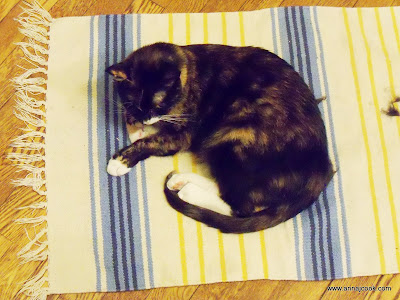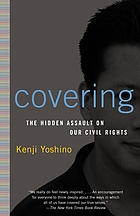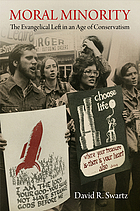I realize writing commentary about a New York Times ladypiece is picking low-hanging fruit, but I have a sinus headache and it's too early to go to bed, so here we are.
If you missed it,
Time magazine ran a story last week about
people women who choose not to parent and the apparently glamorous, self-centered, satisfying lives we lead. As
Tracie Egan Morrissey wryly pointed out at Jezebel, the write-up was framed in such a way as to ensure that even non-parenting women are wrapped into the narrative of the "batshit mommy war":
Perhaps you thought that not having children left you untethered. Wrong! Time has roped you into it, with some inflammatory quotes that will get all the mothers in the world to hiss at you brazen hussies and your childfree existences.
Most of us non-parenting ladies knew already we didn't get to opt out of that one, but thank you
Time magazine for pointing it out once again so hysterically.
Meanwhile, KJ Dell'Antonia riffed off this piece at the NYT Motherload blog (tagline: "adventures in parenting," as if we needed reminding that care for children is understood to be women's work) by asking the question "
can parents stay friends with the childfree?" She excerpts liberally from the
Time piece, starting with:
Any national discussion about the struggle to reconcile womanhood with modernity tends to begin and end with one subject: parenting. Even Sheryl Sandberg’s “Lean In,” a book focused on encouraging women’s professional development, devotes a large chunk of its take-home advice to balancing work and family, presuming that, like its author, ambitious women will have both.
Dell'Antonia herself then reflects:
As a parent myself, I don’t read my tendency to gravitate toward fellow mothers as judgment — I read it as practical. Fellow parents are more likely to understand if I bail on dinner because of a sudden teacher conference, and their eyes are less likely to glaze over if my preoccupation at that dinner is more temper tantrums than, say, the right way to temper chocolate (which might once have held my interest for hours). In fact, I’d argue that it’s win-win.
So I have some thoughts. Obviously, or I wouldn't be writing this post.
Y'all know, if you've spent any time on this blog, that I come at this issue from the perspective of someone deeply invested in remaking the world into a place where families and family care-work is genuinely respected and incorporated into daily life, where children and their carers aren't ghettoized or put on a (false) pedestal while actually being treated like shit. This (probably radical, feminist, maybe a bit queer) political agenda informs how I think about most public discussions about parenting, not-parenting, work and family life, and how the current organization of our economy and social life constrains the choices we have in these areas.
I also come at this conversation from the perspective of someone who is currently, and will likely remain, partnered but non-parenting. I've
written elsewhere about the factors going into that decision, which like any major decision is born of inner desires, practical realities, and the needs and desires of those the decision-maker is in close relationship with.
Here are my thoughts.
First, Dell'Antonia directs her question
only to mothers:
Do we, as women who are also mothers, judge women who are not? And if we do, do we do it overtly or subconsciously — or just by excluding and including people in our lives based on proximity and similarity without realizing that the path of least resistance is one that, for a parent like me, includes mainly friends who are piloting similar family boats?
What strikes me about this framing of the question is the notion that parents and non-parents are two different species, two different tribes, without "proximity and similarity," that only fellow parents are "piloting similar family boats." I notice this a lot in writing about work-life and work-family issues, in discussions about women's decision-making around work, relationships, reproduction.
I reject this false dichotomy between parents and not-parents. Yes, obviously, parenting changes you -- just like any major life experience changes you. But I reject the notion that there's something about parenting that makes it impossible to communicate with individuals who have not yet (or never plan to) cross that divide. I see a similar dichotomy set up between single and married women (and yes, it's most often women). It has a kernel of truth, but gets set up as a means to divide people and pit them against one another. To constantly re-inscribe the supposed differences between not-parents and parents suggests that we must be in competition, that our needs and desires must be set against one another, in opposition. When in reality, our needs as humans are more similar than they are different.
Which brings me to my next point:
not-parents have families too. Notice how, in the
Time piece, "parenting" in the first sentence turns into "family" in the second -- with the suggestion that somehow
only parents struggle with the competing responsibilities of work and home life? Hanna and I, and our cats, are a family unit. We belong to a wider family circle of parents and parents-in-law, sisters and brothers and siblings-in-law, grandparents, cousins, nieces and nephews, and extended relationship.
We also, like parents, have this thing called "home" and a life therein, where shit happens. Shit like laundry and cooking (or not-cooking because you haven't had the energy to go grocery shopping). Shit like getting sick, or caring for a sick spouse, or negotiating with the vet to find an appointment time that you can make before or after work, or on the weekends. Parenting people are not the only ones who've had to cancel a dinner date at the last minute -- or would understand the necessity of doing so, to take Ms. Dell'Antonia's example from above. If parents truly are cutting off their not-parent friends because they pre-emptively imagine there's no longer anything to talk about well ... that seems a damned shame to me. I really like my parenting friends, and I gotta say we find plenty to talk about and enjoy together.
Which brings me to my final point, which is
when the fuck did friendship become a matter of sameness? Again, I get that it helps to have common interests and experiences, common values and goals. But I also feel like there's something -- a
big something -- to be said for curiosity, empathetic listening, and learning. I'd never heard of
Doctor Who before I met Hanna, and tonight while I'm writing this blog post we're re-watching "Rose" and talking about how awesome it is as a series re-boot. We didn't meet as fellow fans, but I was open to discovering something new.
The same could be said about parenting and not-parenting people learning how to talk about their lives (and ask questions about their friends' lives) in ways that don't automatically assume that there will be no common ground, or that just because you haven't had experience Zed you can't be interested or contribute to a discussion on the topic.
It's a pretty fucked-up version of identity politics to assume the only meaningful relationships you can have are with those who've had your specific set of life experiences.


















